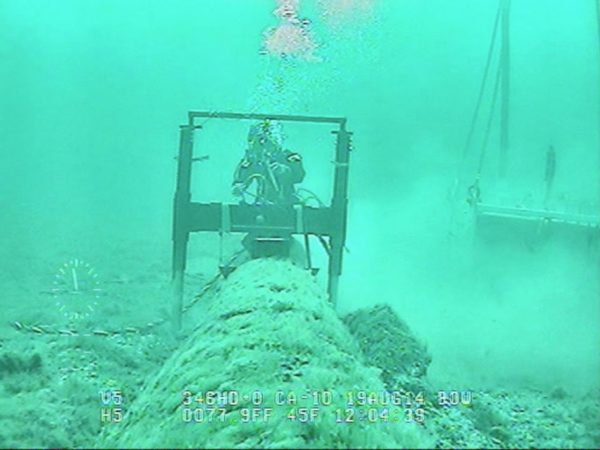
By Zaria Johnson, Ideastream Public Media
This story was originally published by Ideastream.
As election day approaches, presidential candidates Donald Trump and Kamala Harris continue to campaign on issues that are top of mind for many voters like the economy, crime and immigration. But what about the environment?
A recent NEO Voter Voices poll shows less than 5% of people say “climate change” is the most pressing issue for them.
Because of this, Trump, Harris and their running mates — Ohio Senator JD Vance and Minnesota Governor Tim Walz respectively — aren’t pushing the topic along the campaign trail, said Holly Swiglo, co-leader of Sunrise Oberlin, an environmental advocacy organization at Oberlin College.
“The main reason it hasn’t been on the top of their list for either candidates to talk about is because the biggest concern for a lot of undecided voters usually isn’t the climate,” Swiglo said. “That doesn’t mean that the candidates don’t have climate policies or don’t have views on climate. It’s just like their strategy and what they prioritize talking about.”
But there is a bloc of climate-minded voters who are looking at candidates’ past statements on climate change and climate action before casting their ballots, Ohio Environmental Council Action Fund Director Spencer Dirrig said.
“Not just about climate on an environmental lens,” he said, “but also climate when it comes to creating good paying union, family sustaining jobs and clean energy, being at the front of the pack when it comes to being a pro clean energy nation on our development.”
Where they stand on climate change
Trump has denied the reality of climate change, calling it “a hoax,” in 2022.
Vance, Trump’s running mate, changed his stance over the years. He acknowledged the existence of climate change in 2020, was skeptical of human-caused climate change while campaigning for Senate in 2022 and now aligns with Trump on the climate-front.
“He’s right in line, with, the Republican party’s, view on climate change,” said David Cohen, a political science professor at the University of Akron. “He’s certainly right in line, he’s in lockstep, with Donald Trump’s views on climate change, and Donald Trump is on record as being a climate change denier for a long time and including in this campaign.”
Because of this, a Trump/ Vance administration would likely end climate investments made through the Inflation Reduction Act under the Biden Harris Administration that benefited Ohioans, Dirrig said.
“Those projects won’t happen. Those jobs will not be created and those families will not have, you know, lower costs of sustaining jobs,” Dirrig said. “This is a real concern for voters and is a real concern for anyone who cares about the environment.”
The Inflation Reduction Act provided funding for a variety of clean energy projects in Northeast Ohio, including a $17 million gas stove replacement program lead by MetroHealth and a $156 million collaborative solar expansion program lead by Growth Opportunity Partners.
“Vice President Harris advocated for and cast the deciding vote for the Inflation Reduction Act, and that … is the single largest investment ever in climate action, clean energy and environmental justice,” Dirrig said. “The reality is that Kamala Harris was a critical part of the progress, the very meaningful progress, that we have already made on the climate crisis.
Additional support by a president concerned with climate change could bring about continued progress and further address Ohio’s environmental issues, Dirrig said, like clean water and lead safety.
“Kamala Harris has already made that investment and will make additional investments in making sure that kids can depend on clean water coming out of their faucet,” he said. “Donald Trump, on the other hand, has said that he does not want to go after contamination, he does not want to go after those who are polluting our drinking water and certainly would not have signed off on the major investment that was made in our infrastructure to deal with lead service lines.”
Where they fall on fracking
Trump and Harris are somewhat aligned on the issue of fracking, with neither candidate willing to move away from fossil fuels entirely. Though during her campaign in 2019, Harris said she was in favor of a fracking ban.
But a shift in Harris’ position shows an awareness for what the American people want, Sydney Haddad member of Sunrise Oberlin said.
“If [Harris] was to be president, she would be representing the entire of the 50 states,” she said. “Trying to make sure that she is instituting the will of the people and trying to get the people on board is super important because, again, it’s a democracy. This is not a dictatorship.”
Nearly a half of Ohioans say they either “strongly support” or “somewhat support” fracking as a means of increase national gas and oil production in the state, according to the NEO Voter Voices poll commissioned by Ideastream Public Media, Signal Cleveland and WKYC.
Climate-conscious voters should be pragmatic when picking candidates, Dirrig said, even if they don’t love the idea of burning more fossil fuels.
“Of course, we want to see continued action toward transitioning away from fossil fuels,” he said, “but that requires a lot of political support and a Congress that is willing to support more renewable energy development.”
Control of both chambers of Congress is up for grabs on Election Day.
Catch more news at Great Lakes Now:
2024 Election: State and Local Voters Consider Tax Increases for Water Protection
Featured image: Presidential election 2024 in United States of America. (Photo Credit: iStock)




